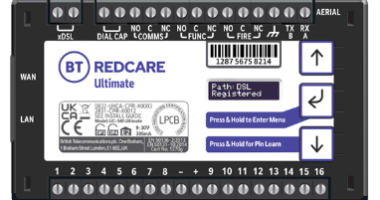A SATELLITE that can look inside buildings at any time of day has been launched.
The space tech takes clear radar images and can even peer through the walls of some buildings.
Capella Space is the company behind the creepy satellite.
Its Capella 2 satellite stands out from other surveillance or observational spacecraft because it can take clear pictures in any weather at anytime.
These means rain and darkness won’t be able to stop it from zooming in on you.
This is thanks to something called synthetic aperture radar (SAR), an imaging technique that can be more effective than optical imaging.
CEO Payam Banazadeh, a former system engineer for Nasa, told Futurism: “It turns out that half of the world is in nighttime, and half of the world, on average, is cloudy.
“When you combine those two together, about 75% of Earth, at any given time, is going to be cloudy, nighttime, or it’s going to be both.
“It’s invisible to you, and that portion is moving around.”
The new satellite aims to combat this issue and provide 24/7 observations on almost anything.
Capella just launched a platform that governments or private customers can use to request images of anything they want to see anywhere in the world.
It plans to deploy six more satellites in 2021.
Banazadeh told Futurism: “There’s a bunch of gaps in how we’re currently observing Earth from space — the majority of the sensors we use to observe earth are optical imaging sensors.
“If it’s cloudy, you’re going to see the clouds, not what’s happening under the clouds.
“And if there’s not much light, you’re going to have a really hard time getting an image that is useful.”
The SAR technique of the satellites works like echolocation.
Radio signals are beamed onto the target area and then when they bounce back an image is interpreted.
It’s a bit like the satellite having X-ray vision and means it can penetrate its gaze through things other satellites cannot like fog or even thin walls.
Capella claims to be the first company to offer SAR tech in this way despite not inventing it.
If you look carefully at some of the satellite’s high resolution images of cities you’ll be able to see you can look right through some sky scrapers.
Banazadeh has claimed that it’s even possible to look at details in individual rooms of buildings.
Capella hopes to improve its tech further but will of course have to abide by privacy laws.
One US law is said to prevent the company from making the resolution of images too high quality.
The tech in it’s current state is still very useful for things like government agencies or scientists wanting to peer through rainforest canopies and observe the creatures below.
In other news, China’s Moon capsule landed on Earth on Thursday carrying the first lunar samples in over four decades.
Photos of ‘alien soil’ from a huge asteroid have been revealed by Japan’s space agency.
And, Britain is to launch a spacecraft next year in a mission to ambush a comet and unlock mysteries of the universe.
What do you think of the high resolution satellite? Let us know in the comments…
We pay for your stories! Do you have a story for The Sun Online Tech & Science team? Email us at [email protected]
This post first appeared on Thesun.co.uk




















